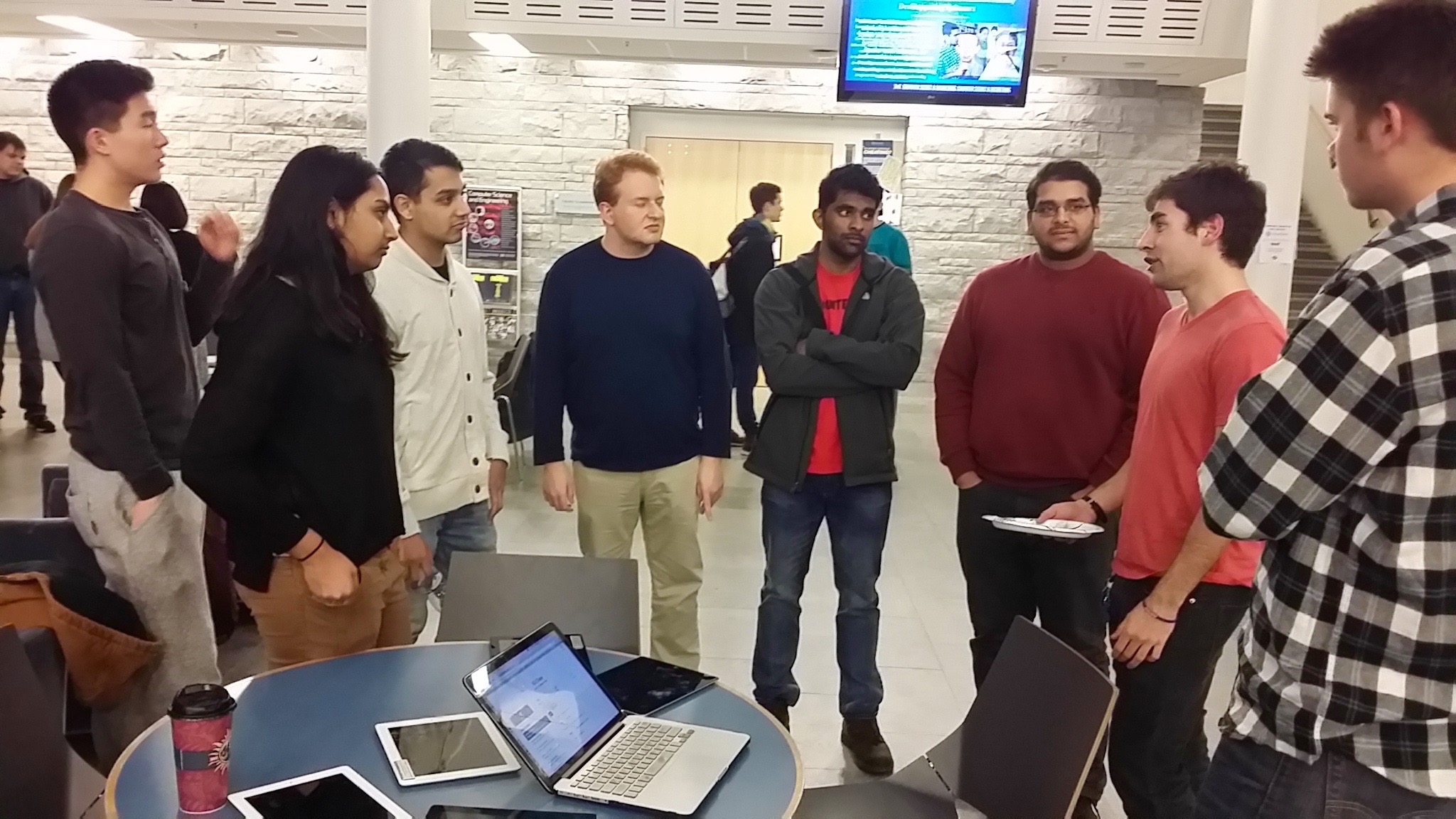Hackers tackle assistive technology
Dr. David Chesney and others hosted a hackathon that focused on projects for the greater good.

 Enlarge
Enlarge
Dr. David Chesney and current computer science students are once again contributing to the development of assistive technology. On Thursday, January 28th, Chesney and his team: Chris McMeeking, former UM CS student and current manager at FEVA; Albert Yerman, current CS junior and FEVA intern; Anna Dai, current CS junior and FEVA intern; and James Beuche, current CoE freshman and Mott Family Network intern, launched Hacking for the Greater Good. The event was 6-hour hackathon that allowed students to work on projects that centered on assistive technology.
The projects included:
The Coloring Wall: This tool uses the Microsoft Kinect for xBox 360 to encourage collaborative play for kids with disabilities. Children with special needs use the Kinect to sense depth and pressure while they are virtually coloring.
ICU Diary: CS students were able to help design features for a web-based diary tool for patients in the intensive care unit. Patients sometimes lose track of time and events, and this tool helps them remember. Some features are already implemented, and students were able to implement many more.
PATH: This is another therapeutic tool that students were able to hack. The tool uses Microsoft Kinect for xBox 360, which encourages motion to maintain strength and tone for children with mobility issues in their upper extremities.

 Enlarge
Enlarge
At the end of the hackathon, a number of candidates were narrowed down for a paid internship in Dr. Dave Chesney’s research group that works on assistive technology and other projects for children with cognitive and physical disabilities.
His research group, FEVA, is a nonprofit that contributes to the commercialization of assistive technology that is made by U of M computer science students.
Chesney states, “Many of the current interns working with me and Mott Children’s Hospital are ‘moving on’ to internships at other leading companies, and I needed to re-populate the team. This seemed like a great way to do just that. Also, we (FEVA) have three projects that are near commercialization, and I wanted to find a team to take them to the next step.”
In 2010, he developed a relationship with the U-M Mott Children’s Hospital that has allowed his students to better understand the needs of patients with disabilities such as cerebral palsy and autism, and to develop assistive technologies to help address those challenges.
Anna Dai says “FEVA is based on the idea that software can and should be utilized more to help children with disabilities and/or illnesses live a normal life. Children everyday have trouble communicating or interacting with the people and environments around them and FEVA is developing tools to fill the gap in software and address these issues.”
“I felt that putting on this hackathon was a fantastic way for us (FEVA) to find like-minded programmers, other engineers who saw the need for assistive software and were passionate about it the way we are. We were able to spread the word about what our mission is, bring attention to what assertive software is and the projects we are currently working on, and gather a really strong group of new interns who dedicated, talented, and are going to be excellent additions to our team!” says Dai.
Hacking for the Greater Good will hopefully not be the last endeavor for Dr. David Chesney and his team.
 MENU
MENU 
